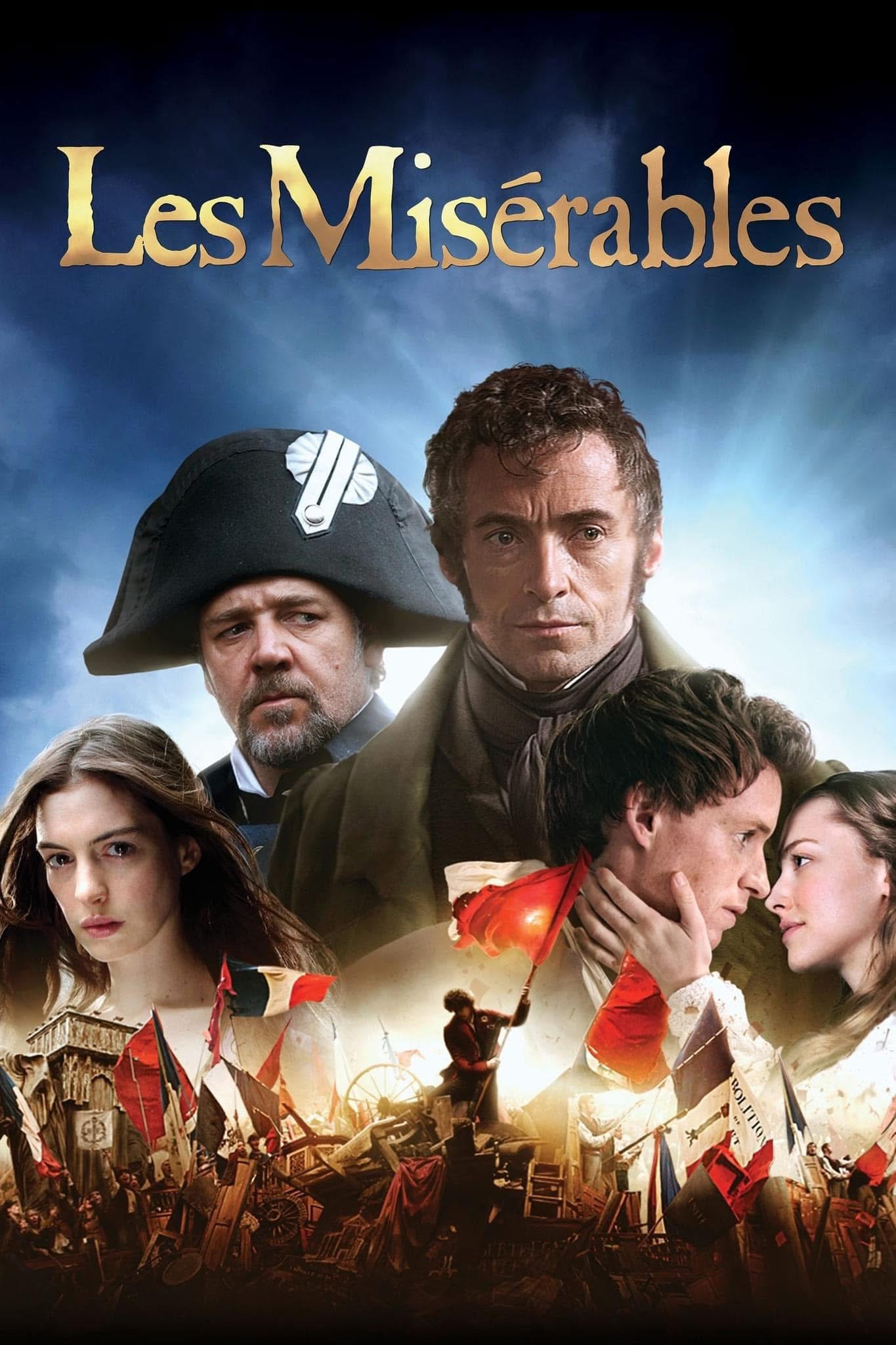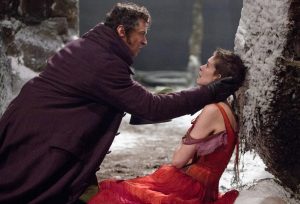Les Misérables (2012)

Les Misérables (2012), directed by Tom Hooper, is a grand cinematic adaptation of the beloved musical based on Victor Hugo’s 1862 novel. With a star-studded cast, breathtaking visuals, and powerful musical performances, the film delivers an emotionally charged experience, bringing Hugo’s timeless themes of love, redemption, and revolution to life. Here’s an in-depth review:
Plot Summary
Set against the backdrop of 19th-century France, Les Misérables follows the journey of Jean Valjean (Hugh Jackman), a former convict who breaks parole to start a new life. Pursued relentlessly by Inspector Javert (Russell Crowe), Valjean’s story intertwines with those of other characters: Fantine (Anne Hathaway), a factory worker turned prostitute struggling to provide for her daughter, Cosette (Amanda Seyfried); the revolutionary Marius (Eddie Redmayne); and the scheming Thénardiers (Sacha Baron Cohen and Helena Bonham Carter).
The narrative weaves personal struggles with larger societal upheavals, culminating in the June Rebellion of 1832. At its heart, the story explores themes of justice, mercy, and the resilience of the human spirit.
Performances
Hugh Jackman delivers a deeply committed performance as Jean Valjean, portraying the character’s transformation from hardened criminal to compassionate protector with emotional depth and vocal range. His rendition of “Bring Him Home” is a standout moment of vulnerability and prayerful desperation.
Anne Hathaway’s performance as Fantine is the emotional core of the film. Her haunting rendition of “I Dreamed a Dream” is raw and heart-wrenching, earning her a well-deserved Academy Award for Best Supporting Actress. Hathaway’s portrayal captures the sheer despair and hopelessness of Fantine’s plight in a way that lingers long after the scene ends.
Eddie Redmayne as Marius brings youthful passion and sincerity to his role, with his rendition of “Empty Chairs at Empty Tables” being especially poignant. Amanda Seyfried’s Cosette, while limited in narrative depth, provides an ethereal quality to the story, contrasting the darker tones.
Russell Crowe’s Javert, however, received mixed reactions. While his acting captures the rigid and dogmatic nature of Javert, his vocal performance is less powerful compared to his co-stars, and his singing style lacks the emotional nuance expected in key moments like “Stars.”
Sacha Baron Cohen and Helena Bonham Carter bring comic relief as the Thénardiers, balancing the film’s heavier moments with their over-the-top antics and gleefully mischievous musical numbers.
Direction and Cinematography
Tom Hooper’s decision to record the actors’ singing live on set, rather than pre-recording in a studio, adds a raw, immediate quality to the performances. While this approach enhances the emotional authenticity, it also exposes vocal imperfections, making the performances feel more human and grounded.
The cinematography, led by Danny Cohen, features sweeping shots of 19th-century France alongside intimate close-ups that emphasize the characters’ emotions. These close-ups are particularly effective during the musical solos, drawing the audience into the performers’ internal struggles.
The production design and costumes immerse viewers in the grim reality of 19th-century France, contrasting the










